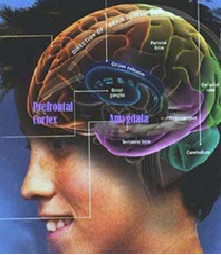What is stuttering?
Stuttering is a speech disorder commonly found in children, where speech is disfluent, with several repetitions of speech sounds during communication. Although this has no damage to the physical health of a person, it can be hard to efficiently communicate with other people. Most people who stutter go to a speech therapist in their childhood and get therapy, which can help reduce or even eliminate the stutter.
Does therapy really help?
A research group in China conducted a study comparing the effect of one week of therapy to no therapy for people who stutter. They recruited participants with a stutter and separated them into two groups: those who receive therapy and those who don’t. Participants without a study were also recruited to act as a control.
Brain scans were done on all participants, and they looked at a section of the brain called the pars opercularis, which is thought to be important for producing speech. It was seen that compared to non-stutterers, the participants who stutter had weaker interactions in this brain region. The scans were done before and after the experimental period, where some participants who stutter underwent one week of therapy (with 3 sessions per day) while others underwent no therapy. Then, the experimenters compared the scans of the therapy and non-therapy groups to the scans of the participants who don’t stutter to see whether there were any changes..
What did the scans show?
The before and after brain scans showed that after only 1 week of speech therapy, the brain connectivity in the pars opercularis region of the participants who stuttered were similar to those of people who don’t stutter! This was a major difference, especially for the short duration that the experiment lasted. As predicted, those who didn’t receive therapy didn’t show a great difference after the one week period, and were still quite different than the scans of people without a stutter.
What does this mean?
The brain is an incredible thing – it can reorganize the connections within it, as seen in the differences in brain scans before and after speech therapy. The increase in connectivity shows that there is improvement, since the brain is developing to become more similar to the brain of someone who does not stutter. Only 1 week of therapy can cause drastic changes for the better! At Simone Friedman SLS, we offer several services to reduce and eliminate stuttering in all age groups, as well as techniques on how to deal with any negative emotions that come with it. If you or a loved one suffers from a stutter, we are able to provide support and resources to help self-manage any stuttering incidents that may arise in the future. For more information of the services offered at Simone Friedman SLS, visit https://simonefriedmansls.com or call 416-546-3044.
References:
(2012, August 2). One Week of Therapy May Help Reorganize Brain, Reduce Stuttering. Neuroscience News.com. Retrieved from http://neurosciencenews.com/one-week-therapy-reorganize-brain-cerebellum-reduces-stuttering/
Lu, C., Chen C., Peng, D., You, W., Zhang, X., et al. (2012). Neural anomaly and reorganization in speakers who stutter: a short-term intervention study. Neurology 79(7): 625-632. doi: 10.1212/WNL.0b013e31826356d2



